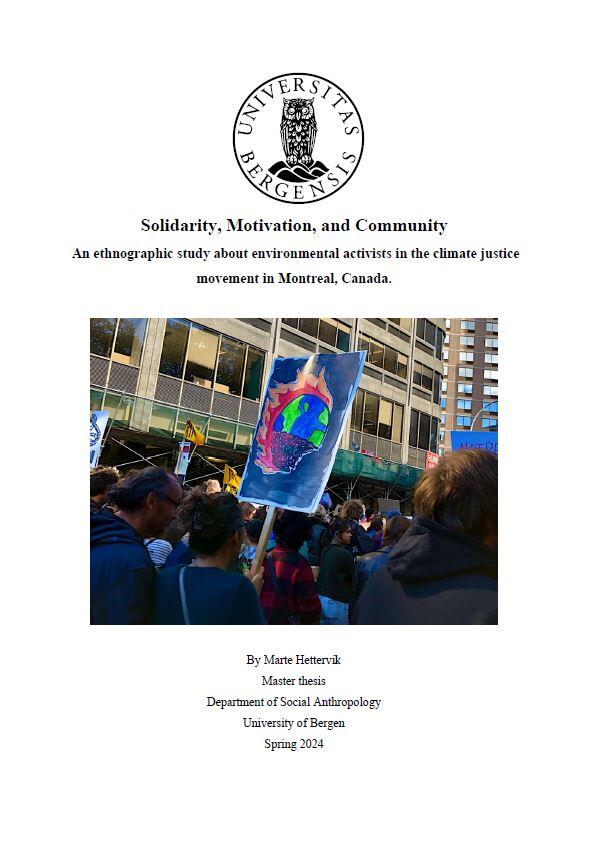Solidarity, Motivation and Community: An ethnographic study about environmental activists in the climate justice movement in Montreal Canada
Hovedinnhold
Master's thesis submitted at the Department of Social Anthropology, spring 2024.
By: Marte Hettervik
Supervisor: Professor Ståle Knudsen
The climate movement is, in many aspects, a global movement. I find it particularly intriguing and fascinating to see how this movement manifests locally and how environmental activists are motivated to participate in this movement. The aim of this dissertation is to shed light on and discuss the motivations that exist among environmental activists, as well as to investigate how solidarity is formed among environmental activists in the existing climate justice movement in Montreal, Canada, or Tiohtià:ke in Kanien’kéha (the Mohawk language). The effects of climate change and other environmental issues have great implications on social life and the earth, which makes environmental activists important for influencing political entities and governments to implement change. Though it might seem evident that a driver for environmental activists is environmental protection, it goes further than this. Many know the threat of climate change is imminent, yet fail to take action. So, what motivates those who do? During my fieldwork in Montreal, I attended protests and get-togethers and interviewed environmental activists. Solidarity is important in the climate justice movement, and creating community becomes a part of this. I have encountered environmental activists whose motivations were influenced by their connection to nature, mothering, and emotions. For many, being a part of a community helps maintain this motivation while showing solidarity with each other. Overall, this master’s thesis explores how environmental activists are motivated by factors such as their connection to nature, mothering, and community and how they are driven by emotions like hope and fear while partaking in the community to combat feelings of solastalgia and climate anxiety. A community becomes important for environmental activists because it contributes to maintaining their motivation, prevents an excess of emotions, and forms solidarity between each other and with Indigenous Peoples, as Indigenous rights are central to the climate justice movement.
